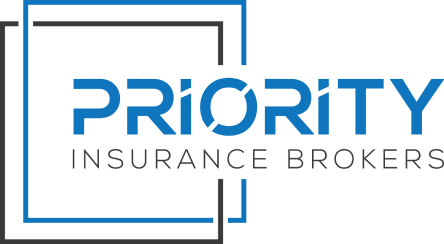Managing a successful business is a large task. Numerous moving parts must be well-coordinated to achieve the desired outcomes. Business insurance is a critical aspect of running a business that is often overlooked. Protecting a business against unexpected risks helps to minimise losses and fosters sustainability.
However, navigating the complex world of business insurance can take time and effort. This is where business insurance advisory comes in handy. A knowledgeable business insurance advisor can guide you in choosing the right insurance policies, making informed decisions, and managing your claims. This blog post aims to help you understand business insurance advisory and its essential role in safeguarding your business.
Understanding the Role of Corporate Insurance Advisors
Business insurance advisors specialise in helping businesses determine the best insurance policies and coverage for their specific needs. They work with business owners to evaluate their unique risks, identify potential exposures, and implement risk management strategies tailored to their businesses. Advisors are knowledgeable in all aspects of insurance, including liability, property coverage, and more.
Benefits of hiring a Corporate Insurance Advisor
One of the main benefits of hiring a business insurance advisor is the expertise they bring to the table. They have in-depth knowledge and experience in the insurance industry and can help businesses navigate the complex world of insurance policies. They can also save businesses time and money by sourcing the best policies and coverage options. Businesses can ensure that their insurance policies align with their overall risk management strategy by working with an advisor.
Another benefit of hiring a business insurance advisor is that they can help businesses understand their coverage options and policies. This includes understanding coverage limitations, exclusions, and deductibles. Advisors can also identify gaps in existing coverage and recommend additional policies to provide better protection. They can also help businesses understand the implications of policy changes and new regulations in the insurance industry.
Hiring a business insurance advisor can also help businesses save money on insurance premiums. Advisors have relationships with insurance providers and can negotiate with them on behalf of their clients. They can ensure that businesses get the best value for their insurance dollar by comparing policies and premiums from different providers. Advisors can also help businesses maintain their insurance policies and ensure they are up-to-date with the latest regulations and requirements.
Evaluating Your Business Risks: The First Step

The first step in understanding your business insurance needs is to identify the risks that your company faces. Insurance advisors use various tools and methodologies to help you evaluate your risk profile. Typically, advisors will start by conducting a thorough risk assessment of your business, looking at everything from your operations and financial history to your industry and the legal and regulatory environment in which you operate. They’ll also analyse any previous insurance claims and identify any coverage gaps you may have.
Once the risks have been identified, insurance advisors will work with you to create a comprehensive risk management plan. This plan will provide a detailed roadmap for mitigating the risks and protecting your business in a disaster. The plan will usually include a review of your current insurance policies to ensure that your coverage is adequate and recommendations for additional coverage if required. Advisors will also provide advice on risk avoidance and risk reduction techniques.
To evaluate risks, insurance advisors use a range of tools and methodologies. One of the most common tools used is the risk matrix, which assesses the probability of an event happening and the potential consequences of that event occurring. Advisors will also review historical claims data, conduct surveys and interviews with employees, and perform site visits to better understand your business processes.
In addition to identifying risks and creating a risk management plan, insurance advisors can assist you with filing claims and negotiating with insurance providers on your behalf. Many businesses need more time and expertise to navigate the claims process effectively, and that’s where advisors come in. They can help you prepare and submit your claim and work with the insurance provider to ensure you receive the compensation you’re entitled to.
Deep Dive: Types of Business Insurance
Property Insurance:
Property insurance covers damages to your business property, including buildings, furniture, equipment, and inventory. It protects you from losses due to natural disasters, theft, vandalism, and other hazards. Since this type of insurance can be highly specific, corporate insurance advisors can help evaluate the hazards prevalent in your area to offer the best recommendations.
Professional Liability Insurance:
Professional liability insurance, called errors and omissions insurance, covers professional negligence, mistakes, or malpractice damages. It’s important for businesses that offer professional services or advice to clients.
Cyber Insurance:
With the rise of digital technology, the risks of cyber-attacks and data breaches are increasing. Cyber insurance covers your business against damages and legal expenses in case of data breaches, cyber-attacks, and other cyber threats. An advisor can help identify the most significant threats to your business and recommend appropriate coverage.
Customised Insurance Solutions: Crafting the Perfect Plan
The role of insurance advisors is to help businesses navigate through various insurance options and create a customised plan that meets their unique needs. Insurance advisors are experts in the field and deeply understand the types of risks your business might face. They can save a lot of time and effort for business owners by identifying the right insurance coverage and tailoring the policies to fit their specific business needs.
Moreover, insurance advisors can access various insurance products from different insurers. This means that they can compare policies and find the best coverage at the best price for their clients. Insurance advisors are also knowledgeable about the ever-changing insurance market and regulations, so they can keep businesses up-to-date with the latest developments and ensure that their insurance policies provide the best protection.
Benefits of Customised Insurance Plans
Customised insurance plans offer a range of benefits for businesses. First and foremost, they provide tailored solutions to meet a business’s specific needs rather than adopting a one-size-fits-all approach. This means businesses only pay for the coverage they need, reducing costs while avoiding overpaying for coverage they might not require. In turn, businesses can allocate resources more efficiently to other areas.
Customised insurance also provides more comprehensive coverage than pre-packaged policies. Insurance advisors have the flexibility to combine different coverage options to create a policy that meets your specific needs. This ensures businesses have appropriate protection for unexpected accidents or liability issues.
Moreover, customised insurance plans can improve risk management by minimising blind spots in coverage. In the worst-case scenario, if a claim occurs, businesses with customised insurance plans can rest assured that they have the right coverage.
Cost-Benefit Analysis: Making Informed Decisions

A cost-benefit analysis is a tool used to evaluate the potential benefits and costs of a particular action, decision, or project. When choosing a business insurance advisory service, a cost-benefit analysis can be useful in evaluating whether a particular advisory service is worth the investment.
The first step in conducting a cost-benefit analysis for your business insurance advisory service is to identify the potential benefits of the service. The benefits of an advisory service will differ depending on the nature of your business and the insurance needs of your business. Some potential benefits include reduced insurance costs, improved risk management, and increased awareness of potential risks.
Once you have identified the potential benefits of a business insurance advisory service, the next step is to evaluate the costs associated with the service. Advisory services can vary significantly in cost depending on the extent of the services provided. When evaluating the potential costs associated with an advisory service, it is important to consider the financial impact on your business.
After identifying the potential benefits and costs associated with an advisory service, the next step is to compare the two to determine whether the investment is worth it. A positive cost-benefit analysis indicates that the benefits of the advisory service outweigh the costs, making it a worthwhile investment for your business.
When deciding on a business insurance advisory service, it is important to remember that the cheapest option may only sometimes be the best option. A cost-benefit analysis can help you determine which advisory service will provide the most value for your investment.
Legal Compliance and Business Insurance
What is Legal Compliance and Business Insurance?
Business insurance advisory is a comprehensive way to protect your business. It is a specialist service that includes evaluating the risks associated with the business, designing insurance coverage to manage these risks, and ensuring legal compliance. Compliance refers to the measures businesses must follow according to the law, industry standards, and other regulatory requirements.
Understanding the Legal Nuances
Businesses in different jurisdictions must comply with different legal requirements, which can be challenging to understand. Advisors work to provide businesses with a deep understanding of these nuances and ensure they remain compliant without violating any laws. For instance, advisors work to ensure businesses comply with regulations regarding employment practices, tax laws, and other legal and financial requirements.
Ongoing Review of Legal Compliance Issues
Maintaining legal compliance is not just a one-time task but an ongoing process. Advisors conduct regular business reviews to ensure compliance with current laws and regulations. Additionally, advisors keep businesses updated on changes to the legal landscape and guide new legal developments that could impact the business.
Benefits of Compliance
Ensuring that your business remains compliant with legal requirements has many benefits. These benefits include protection from fines and penalties, maintaining the business’s reputation, and fostering a culture of ethics. Abiding by all legal requirements adds a layer of trust to the greater business community and affirms the business’s position.
Hiring a Business Insurance Advisor
Finding the right business insurance advisor helps ensure your business remains legally compliant. It would help to have an advisor with sufficient technical knowledge and experience as a business owner. The advisor’s expertise should be related to your industry, business needs, and legal requirements. Additionally, the advisor should be willing to work with your business over the long term and remain vested in your success.
Insurance Procurement: Simplifying the Process
Understanding Business Insurance Needs
The insurance procurement process starts with understanding your unique business insurance needs. Insurance advisors work with businesses to identify the specific types of coverage that they require. This includes liability insurance, property insurance, and worker’s compensation insurance, to name a few. Insurance advisors can also advise businesses on the coverage limits necessary to adequately protect their assets.
In addition to identifying the necessary coverage, insurance advisors can also provide guidance on the types of insurance companies that will best fit the business. This includes researching and evaluating insurance companies based on their financial stability, claims payment history, and customer service reputation.
Customised Insurance Procurement Strategies
Once the insurance needs are identified, insurance advisors can work with businesses to establish a customised insurance procurement strategy. This includes developing a timeline for the procurement process, determining the appropriate bidding process, and negotiating insurance terms and prices.
With an established procurement strategy, insurance advisors can oversee the entire process, from obtaining quotes to negotiating terms to finalising policies. This delegation of responsibility allows businesses to focus on their day-to-day operations while ensuring they have the necessary insurance coverage to protect their assets.
Ongoing Insurance Management
Insurance procurement is just the beginning of an ongoing insurance management process. Insurance advisors can guide policy renewals, policy changes, and claims management. This includes regular policy reviews to ensure that coverage limits are still appropriate and identifying gaps that may need to be addressed.
Insurance advisors can also provide claims support in the event of a loss. This includes assisting with claim filing, advocating for the client with the insurance company, and ensuring that the claims process runs smoothly.
Tips for Efficient Insurance Procurement
When it comes to efficient insurance procurement, there are a few tips to keep in mind:
- Start the procurement process early to allow ample time for researching insurance providers and negotiating terms
- Establish clear communication with the insurance advisor to ensure that all insurance needs are identified and that timelines are followed
- Define the specific insurance requirements upfront to avoid any misunderstandings in the bidding process
- Review all insurance policies regularly to ensure that coverage limits are still appropriate
Claim Management: An Advisor by Your Side
The role of advisors during claims
When managing insurance claims, advisors can provide valuable assistance and help you navigate the process with ease and assurance. Here are some of the roles that an advisor can play during the insurance claim process:
- Interpretation of insurance policies: Your advisor will simplify complex insurance policies and ensure you’re fully aware of the coverage limits, exclusions, and other conditions that may affect the claim.
- Gathering evidence and documentation: Advisors work with you to gather evidence and documentation necessary to support your insurance claim and submit them following the insurer’s stated guidelines.
- Advocating for your interests during negotiations: Advisors collaborate with your insurer to advocate for your interests and try to reach a mutually beneficial agreement regarding the claim.
- Identifying disputes and risks: Your advisors will identify areas of disputes and risks, helping you plan for the future and take steps to reduce risks that may lead to future claims.
Strategies for smooth claim management
Now that you know the role of advisors during the claims process, let’s discuss some of the strategies that will help you manage the claim process with ease and confidence:
- Act fast: Report your claim as soon as it occurs and respond quickly to any requests for information or paperwork from your insurer.
- Understand your policy: Know your policy in and out and your coverage limits and conditions.
- Communication: Keep open channels of communication with your insurer and the insurance advisor to ensure everyone is on the same page.
- Document everything: Keep organised records, including photos, receipts, and other documentation related to the claim.
- Seek expert help: If the claim needs to be simplified, consider hiring an advisor to help you navigate the process.
Renegotiating Your Insurance Policy: Expert Advice
As your business grows and evolves, your insurance needs will also change. You may need more coverage, different types of coverage or want to add new policies to your portfolio. Additionally, changes in the market, regulatory environment, or internal factors may impact your insurance coverage needs. To avoid underinsuring or overpaying for insurance, it’s essential to re-evaluate and renegotiate your policy regularly. Renegotiating early, based on significant life events like adding a new business partner, could help you keep your premiums down.
When to renegotiate your insurance policy
One appropriate time to renegotiate your insurance policy is when it’s due for renewal. This is an excellent opportunity to review your coverage and negotiate better rates. Suppose you’ve stayed the same within your company- a better rate or discounts could be achieved with a new policy. Going through a broker can be helpful as they bring experience in the negotiation process and price shopping of different carriers.
How an advisor can help renegotiate your insurance policy
Insurance advisors can help you navigate the complexities of the insurance market and negotiate the best policy for your business’s needs. They can assist you in reviewing your policy, assessing your company’s needs, and providing valuable insights on modifying or refining your insurance requirements. An advisor can also analyse pricing trends in your industry and provide custom or creative solutions to match your needs.
The benefits of renegotiating your insurance policy
There are numerous benefits to renegotiating your insurance policy; some include saving money as you find a better deal, increasing your coverage, and understanding your policies better. Also, saving money and protecting yourself and your assets will help you grow and thrive in your business!
Conclusion
In conclusion, business insurance advisory is invaluable in protecting a business against potential risks. Business insurance advisors provide businesses with advice, guidance, and expertise that helps them make informed decisions. Insurance advisors ensure businesses remain sustainable and profitable in the long run by assessing businesses’ risks, evaluating different policy options, customising insurance plans, performing cost-benefit analyses, and managing claims. Reach out to a reliable business insurance advisor today and safeguard your business from uncertainties.
Frequently Asked Question
How long does it take for insurance to pay out?
It depends on the type of insurance and the claim. Claims, like auto insurance, can take up to 30 days or more for an investigation before payment is issued. Business owners should contact their insurer directly with questions about how long it will take them to pay a claim.
Why use a corporate insurance advisor?
Insurance advisors are independent agents who will provide you with the best coverage and rate available. They can also help review existing policies to ensure you get the best coverage for your needs. Additionally, they have access to various carriers, so they can shop around on behalf of their clients and find the most comprehensive coverage at the best price. This saves time and money and reduces the risk of being underinsured.
How much public liability insurance do I need in Australia?
Generally, the amount of public liability insurance needed will depend on your type of business. For example, a small retail shop may need less coverage than a construction company. That said, most businesses should ensure they have at least $5 million of public liability insurance coverage to protect against lawsuits. It is important to speak with an experienced broker to get tailored advice and determine the precise amount of coverage you need.
How long does it take for insurance to assess damage?
The time it takes for an insurer to assess damage will depend on the type and severity of the incident. Generally, the assessment process may be relatively quick if there is minimal property damage or few injuries. However, if extensive repairs are needed, or multiple people are injured, the process can take significantly longer as more information is required to determine a final settlement amount. It is important to speak with your insurer or broker to get an accurate timeline for damage assessment.
Why do I need public liability insurance?
Public liability insurance is an important form of coverage that protects businesses against claims made by third parties. This includes bodily injury, property damage, or financial loss caused by the business’s products, services, or employees. Without public liability insurance, a business may be liable to pay for any damages or losses out of pocket.







